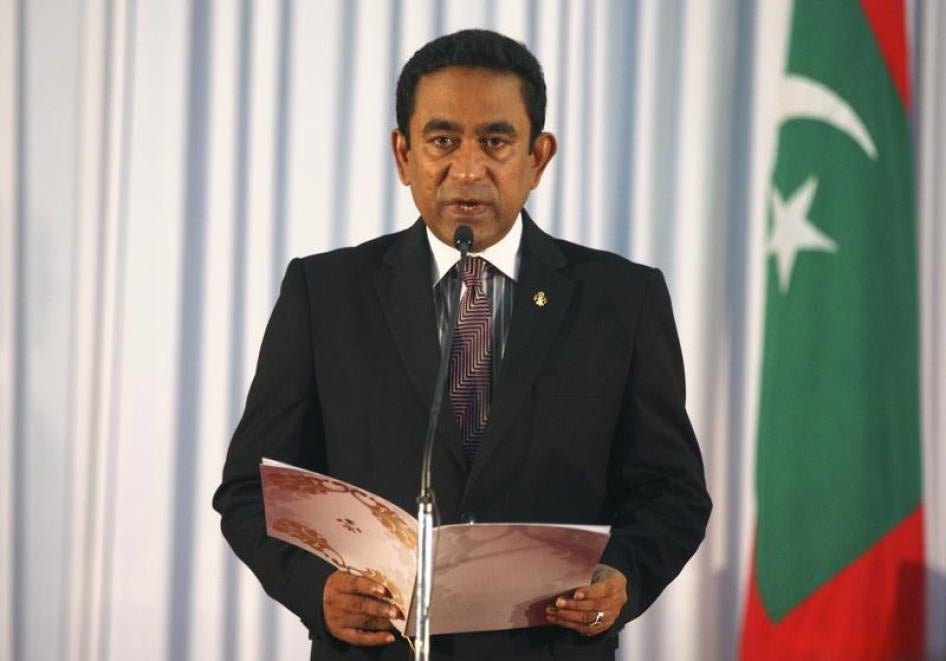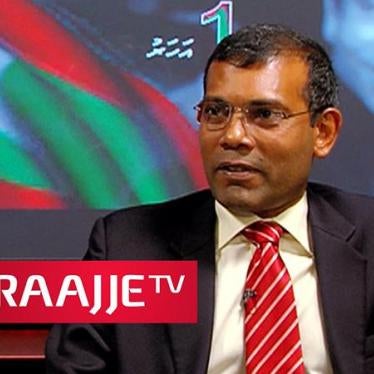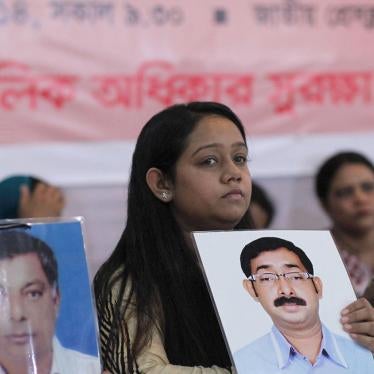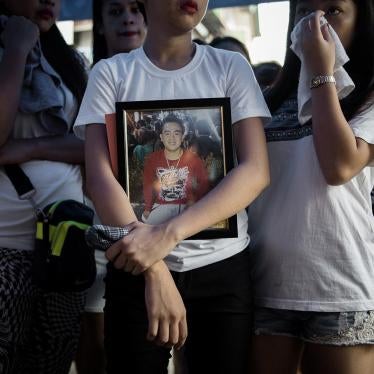(New York) – The Maldives government-controlled Election Commission appears to have adopted new vote-counting rules that threaten prospects for a free and fair election on September 23, 2018, Human Rights Watch said today. The government of President Abdulla Yameen Abdul Gayoom has for months cracked down on opposition parties, the media, and critics.
“Maldives authorities have detained critics, muzzled the media, and misused the Election Commission to obstruct opposition candidates to ensure President Yameen a victory on election day,” said Patricia Gossman, Asia associate director. “If officials are manipulating the way votes are counted, it will deny the Maldivian people’s right to choose their president.”
Activists in the Maldives told Human Rights Watch that abrupt changes to the vote-counting process will permit opposition and independent observers to see only bundled papers for each candidate rather than individual ballot papers, as was the case in previous elections. Such a change will make verification impossible. The new procedures also prohibit observers from filing complaints about the count until after the official results have been publicly announced.
In addition, according to a leaked document obtained by the opposition Maldivian Democratic Party (MDP), the Maldives Election Commission has ordered officials to input results at each polling place into a tablet computer, and to announce the result only after they receive a “confirmation” from headquarters. This contravenes the Maldives Elections Act, article 57, which stipulates that results must be announced and published physically at each polling place before being sent to the central election commission. Election officials have denied that they are changing the counting process.
In addition, officials from the ruling Progressive Party of the Maldives (PPM) responsible for hiring elections staff to oversee the vote have questioned applicants about whom they planned to vote for. One person who had served as an election official in previous elections said she refused to answer and was then told she did not meet the requirements.
Since July, the Election Commission has made multiple changes in regulating voter registration, including requiring civil servants to re-register at their workplace under the supervision of ruling party appointees who allegedly went through the forms and only submitted those from their supporters.
In the past year, the Yameen government has jailed opposition activists under vague provisions of the Anti-Terrorism Act, restricted protests, arrested peaceful protesters, and blocked opposition leaders from contesting elections. In May, the Election Commission announced it would reject the presidential candidacy of anyone with a criminal conviction, effectively banning the four main opposition leaders from running because of politically motivated cases. In response, an alliance of opposition parties has supported a joint candidate, the parliamentary group leader, Ibrahim Mohamed Solih.
A Human Rights Watch August report, “An All-Out Assault on Democracy: Crushing Dissent in the Maldives,” documented the government’s use of counterterrorism laws against opposition activists and politicians; anti-defamation laws against media and social media activists who criticize the president or his policies; and restrictions on assembly that have prohibited or severely limited peaceful rallies and protests. Religious extremists and criminal gangs—including many that enjoy the patronage of politicians—have assaulted—and murdered dissenters with impunity.
Concerned governments should press the Maldives to uphold the rights of its citizens to freely choose their government, and to peaceful expression and assembly. Should the Maldives government fail to do so, they should impose targeted sanctions, such as those proposed by the European Union, against senior ruling party officials implicated in abuses.
“President Yameen has already jailed leading members of the opposition and issued draconian decrees to silence a free press,” Gossman said. “Foreign governments should make clear that any attempt to rig the elections would result in targeted sanctions against him and other senior officials.”









